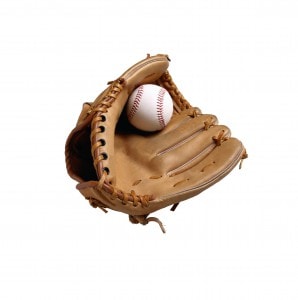January 15, 2015
 Indiana State Representative Alan Morrison (R-Terre Haute) has introduced two bills that address emerging trends in sports gaming, namely: sports betting and fantasy sports.
Indiana State Representative Alan Morrison (R-Terre Haute) has introduced two bills that address emerging trends in sports gaming, namely: sports betting and fantasy sports.
A Two State Tease?
The first bill would legalize sports betting when the betting activity is confined to the State’s casinos, racinos and licensed off-track betting venues. This legislation mirrors, in many ways, similar efforts recently undertaken by New Jersey to legalize sports betting at its brick-and-mortar casinos (see here and here, for example).
New Jersey’s legislation was passed into law, but is currently facing legal challenges from the NCAA and several professional sports leagues. It is likely that Rep. Morrison’s legislation would face similar challenges.
Notwithstanding the foregoing, in November 2014, new NBA Commissioner Adam Silver made very public comments in a New York Times Op-Ed (and elsewhere) embracing the legalization of sports betting and acknowledging the extent to which sports betting – and fantasy sports – drive interest in the NBA and other sports leagues. Commissioner Silver’s statements seem to represent a shift in the NBA’s long-held opposition to sports gaming, and may lead to a softening of the position of other sports leagues as well.
Double Fantasy?
The second bill introduced by Rep. Morrison would officially exempt certain online fantasy sports games, played for a fee and offering cash prizes, from Indiana’s gambling prohibitions. While many fantasy sports games would seem to be exempt from Indiana’s anti-gambling laws (see here, here and here for a relevant discussion), Rep. Morrison’s legislation would remove any and all doubt.
The proposed legislation is similar in many respects to a law that was passed in Maryland in May 2012, in that it relies on a similar definition of “fantasy sports” as found in the 2006 Unlawful Internet Gambling Enforcement Act (“UIGEA”).
This means that, in order to fall within the exemptions set forth in UIGEA and, likewise, the Indiana bill: (1) the applicable fantasy sports league prizes must be established and made known to the participants in advance of the game or contest and their value cannot be influenced by the amount of fees paid by, or number of, participants; (2) all winning outcomes must be determined predominantly by accumulated statistical results of the performance of multiple individuals in multiple real-world sporting events; (3) no winning outcome may be based on the score, point-spread or any performance or performances of any single real-world team or any combination of such teams; and (4) no winning outcome may be based solely on any single performance of an individual athlete in any single real-world sporting event.
Fantasy Sports Have a Clear Path, While Hurdles Remain for Sports Gambling
As mentioned above, the sports betting legislation would still likely face many challenges under existing federal law (particularly, the 1992 Professional and Amateur Sports Protection Act (“PASPA”)). However, as Rep. Morrison acknowledged in public comments, the State of Indiana is becoming increasingly reliant on revenue derived from gaming activities and even if federal prohibitions remain in place for the immediate future, if federal law were to loosen up at some later date, Indiana would be in a position to begin the implementation process immediately.
Rep. Morrison’s fantasy sports legislation is indicative of the current mainstreaming of paid fantasy sports contests across broad swathes of American society – with recent buy-in from the major professional sports leagues, fantasy sports offerings being released by major media companies and significant investment in fantasy sports ventures from Wall Street.
The increasing ubiquity and acceptance of sports betting and fantasy sports gaming remains a significant topic for all gaming attorneys, fantasy sports lawyers and those interested in gaming and fantasy sports law in general. If you plan on engaging in, or operating, a fantasy sports or other gaming venture, you should retain competent legal counsel to help you design your contests so that they comport with applicable law.
If you are interested in learning more about this topic or pursuing a venture in this area, please e-mail us at info@kleinmoynihan.com, or call us at (212) 246-0900.
The material contained herein is provided for informational purposes only and is not legal advice, nor is it a substitute for obtaining legal advice from an attorney. Each situation is unique, and you should not act or rely on any information contained herein without seeking the advice of an experienced attorney.
Attorney Advertising
You may be interested in similar blog posts related to this topic:
The NBA Gets an Assist on Daily Fantasy Sports Games
New Jersey Ban on Sports Gambling Repealed
Maryland Law Exempting Fantasy Sports from Gambling Prohibition Goes Into Effect



